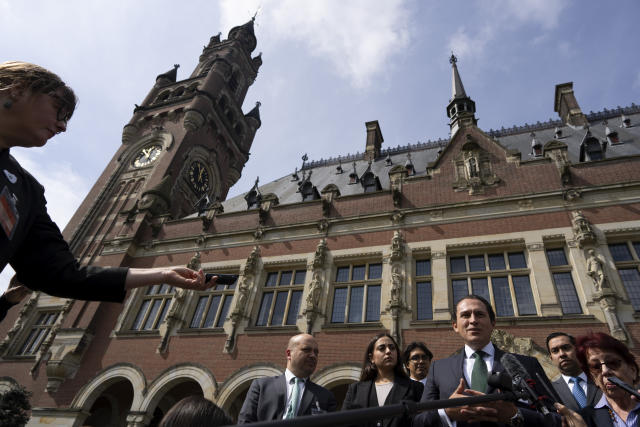Mexico lodged a serious complaint against Ecuador at the top U.N. court on Tuesday, accusing the country of breaking international law. They argued that Ecuador had no justification for forcefully entering the Mexican Embassy in Quito to arrest former Vice President Jorge Glas, who had just been granted asylum by Mexico.
The incident occurred on April 5, shortly after Mexico had granted asylum to Glas, who had taken refuge at the embassy since December. This raid escalated tensions between the two nations. Many leaders in Latin America condemned the action, stating it violated the Vienna Convention on Diplomatic Relations.
Alejandro Celorio Alcantara, a legal adviser for Mexico’s Foreign Affairs Ministry, emphasized the seriousness of Ecuador’s actions: “There are boundaries in international law that should not be crossed. Unfortunately, Ecuador has crossed them.” He criticized Ecuador’s disregard for international norms and its use of force against Mexican diplomats during the raid, which was captured on surveillance video.
Ecuador argued that Glas was wanted for corruption convictions, not for political reasons, and claimed that Mexico’s decision to grant asylum to a convicted criminal violated the Vienna Convention. However, Celorio argued that no international rule could justify violating the inviolability of the Mexican Embassy.
The International Court of Justice held preliminary hearings over two days to address Mexico’s request for provisional measures while the case progresses. Mexico sought orders for Ecuador to protect diplomatic premises and prevent further intrusions, as well as permission to clear its diplomats’ homes. Mexico also requested reparation and the suspension of Ecuador from the United Nations.
In response, Ecuador filed its own case, accusing Mexico of using its embassy to shield Glas from Ecuadorian law enforcement. They requested the court to rule that Mexico’s actions breached international conventions. Hearings for Ecuador’s case were yet to be scheduled.















































